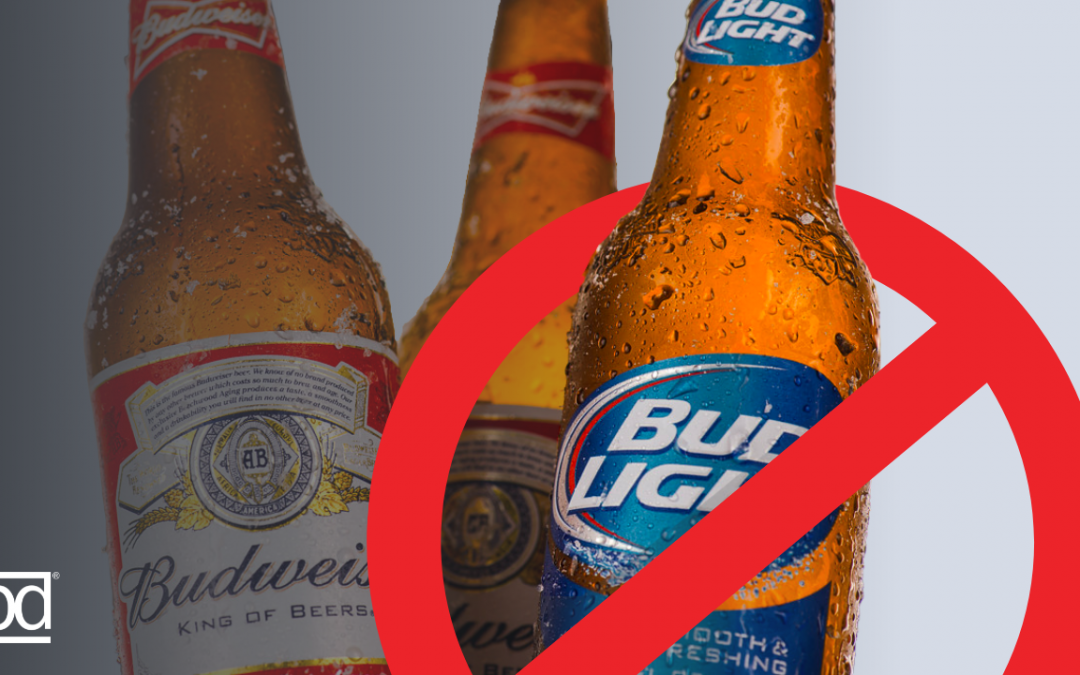Bud Light finds themselves in the eye of the storm during the most recent national culture wars. The brand launched a campaign featuring transgender activist Dylan Mulvaney and it was met with unanticipated vitriol from conservative groups and celebrities alike. Mulvaney is a social media influencer with over 10 million followers on TikTok and 1.8 million on Instagram.
Alissa Heinerscheid, the vice president of marketing for Bud Light, said she was tasked with the responsibility to revive a dying brand. “The brand is in decline,” Ms. Heinerscheid said on the “Make Yourself at Home” podcast in March. “It’s been in decline for a really long time. And if we do not attract young drinkers to come and drink this brand, there will be no future for Bud Light.” Anheuser Busch has since placed two marketing executives on leave following the controversy. But Light hasn’t been culturally relevant as a brand for decades, their last major splash was their True commercial better known as “What’s Up.” True was a short film created by Charles Stone III, a video music director who had aspirations of making full length feature films
The Impact of The Bud Splash
According to the New York Post Bud Light lost 6.7% of market share during the week of April 24th while Coors Light and Miller Lite are up 18%. A week earlier, Coors Light’s market share was up 10.6% over the same period and Miller Lite up 11.5%.
Brayden King, a professor of management and organizations at Northwestern University’s Kellogg School of Management said: “While boycotts can “definitely” have an impact on a company’s public image and reputation, there is less evidence that boycotts have a long-term impact on sales revenue.”
It’s important to listen to feedback and make adjustments as necessary. Bud Light’s premature response to the social media backlash may come across as an inauthentic attempt to connect with a segment of the market to which they didn’t have an affinity. Pulling the plug on their partnership with Mulvaney coupled with suspending their marketing team shows their lack of commitment to the community they were trying to reach. and makes it feel disingenuous even if their intentions were pure at the start. Now their actions seem like a quick fix money grab rather than an opportunity to make a true impact.
What Does This Mean For You
First and foremost, know your audience, having a brand persona in place would help to inform your marketing strategy, but a brand persona alone is not enough, it only tells you part of the story. The Bud Light campaign highlights the importance of doing research and being prepared for potential backlash. The segment of the market Budweiser was trying to reach expects brands to take a stand on social issues, what they don’t expect or respect is for them to flip flop by putting their marketing executives on an immediate leave of absence following criticism from their more conservative, older, fan base.
Key Takeaways
Brands, both personal brands and entrepreneurs can learn from this and make changes to their messaging to better align their values with social causes and influencers they decided to partner with. When working with influencers or activists, it’s crucial to ensure that the partnership aligns with your brand’s values and goals. Doing your research and due diligence can help ensure that the partnership is a good fit and won’t cause harm to either party. We’ve seen other big brands get behind social causes with commitment, and their revenues increased. Take Ben & Jerry’s Ice Cream and Nike for example, they are both known for inserting themselves in the social discourse and taking a stand on what some might consider controversial.
Nike
There was speculation Nike was going to take a financial hit after their endorsement of Colin Kaepernick. According to Edison Trends Nike saw a 31% increase in sales vs. 17% last year during the same period.
Ben & Jerry’s
Ben & Jerry’s partnered with Kaepernick to create a vegan flavor with a 100% of with 100% of Kaepernick’s portion of the proceeds supporting the work of Know Your Rights Camp. Both campaigns were successful because the brand identities and the audiences’ values aligned.
Taking a Stance on Social Issues
Overall, this situation serves as a reminder that brands taking a stance on social issues can be complex and nuanced. While it’s important to support marginalized communities and stand by your values, brands need to be aware of the potential risks and be prepared to respond to criticism. It’s important to understand your core audience. Kid Rock was a proud supporter of Bud Light pre Mulvany’s partnership now he’s on a rampage. Personal brands and brands can learn from this situation and use it as an opportunity to improve their approach to social issues and partnerships.

